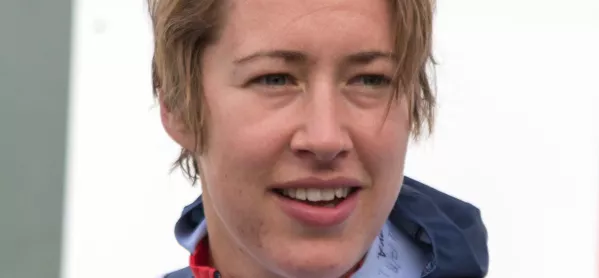Lizzy Yarnold MBE won gold medals in the Winter Olympics in Sochi 2014 and this year in PyeongChang in the skeleton sled event.
It’s a high-adrenaline sport in which she reaches speeds of up to 90mph lying face down on a sled. “Sometimes your chin can be scraping the ice,” she said. “It’s exhilarating but you have to stay focused on steering. Because of the aerodynamics, even a slight tilt of the head causes you to change direction.”
Ms Yarnold has now paid tribute to her PE teachers who created lessons that “have stayed with her.”
“At primary school we were encouraged to play any and every sport,” she told Tes. “It didn’t matter if you were a girl or a boy, you still played cricket and football.
“At secondary school I hated cross-country and even though I‘d be near the back, I learned I could still do something even if I didn’t want to, and I also learned about a sense of achievement.”
PE ‘teaches camaraderie’
The athlete says there is a hidden curriculum in PE lessons in which pupils learn about camaraderie and “picking themselves up after failure” as well as commitment and dedication - all of which helped her to become the most successful Olympic skeleton athlete of all time from any nation.
She attended St Michael’s Preparatory School, an independent school in the village of Otford, Kent, as well as Maidstone Grammar School for Girls, where she became head girl.
She said: “I was really lucky that my PE teachers were so encouraging. I wasn’t really very academic and always attached more importance to sport and PE and games. I learned so much from those lessons and to know that these days you can make a career out of sport as a woman is a wonderful feeling.”
Ms Yarnold is helping to promote the healthy eating campaign launched by supermarket chain Aldi, which is committed to improving the healthy eating habits of 1.2 million children in the UK by 2020.
Aldi’s research revealed a drop-off in healthy eating habits between primary and secondary school-aged children, with 72 per cent of seven- and eight-year-olds likely to eat fruit daily and only 59 per cent of 13- and 14-year olds likely to eat fruit daily.
Ms Yarnold said: “I grew up on a farm, so eating protein and having a healthy balanced diet was really important. My school lunches were always about having the most colourful plates from the salad bar.
“It’s about encouraging children to try different things and be brave about it.”
For more information about Aldi’s partnership with Team GB, visit www.aldi.co.uk and for more information about its design a bag competition please visit www.getseteatfresh.co.uk/designabag
Want to keep up with the latest education news and opinion? Follow Tes on Twitter and like Tes on Facebook




